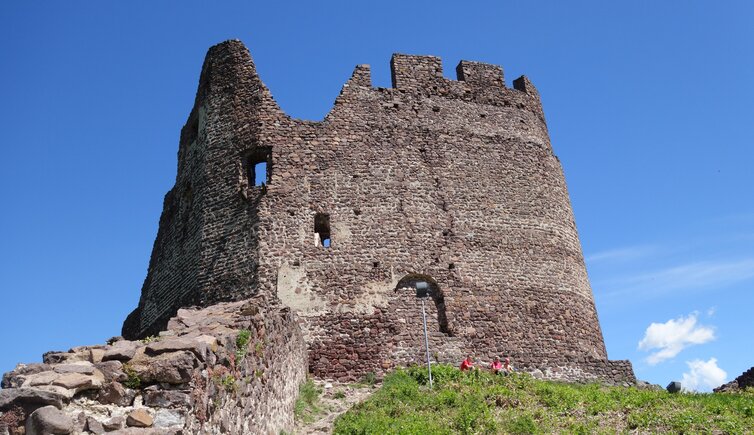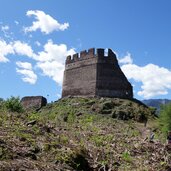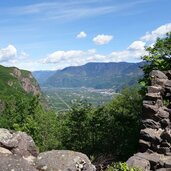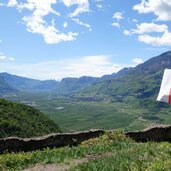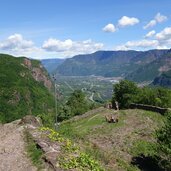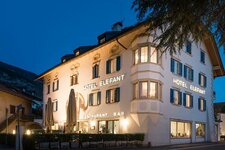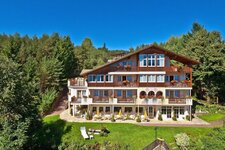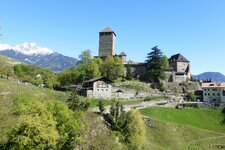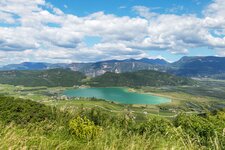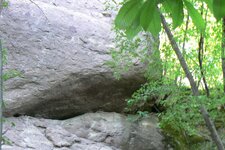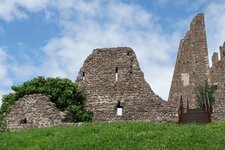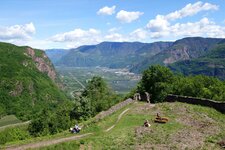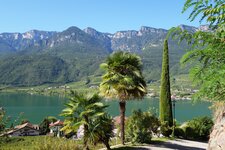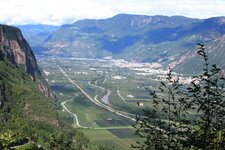The Castelchiaro Ruin, or Leuchtenburg Castle, seems to mount guard over Lake Caldaro in the south of South Tyrol
Image gallery: Castelchiaro
-
-
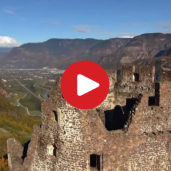
Video : Castelchiaro in Caldaro as seen from above
-
1540297053_D_RS193658_9058-st-josef-am-see-blick-richtung-leuchtenburg.JPG
-
D_4170-leuchtenburg.JPG
-
D_4173-leuchtenburg-aussicht-richtung-leifers.JPG
-
D_4182-leuchtenburg-aussicht-richtung-salurner-klause.JPG
-
D_4195-leuchtenburg-aussicht-richtung-leifers.JPG
-

D_0331-dji-Leuchtenburg-kalterersee-herbst.jpg
-
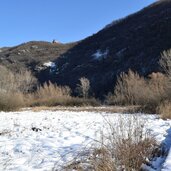
D_0537-Kalterersee-Winter-Leuchtenburg.jpg
-

video : Hiking tip: Horse Teeth and Castelchiaro
The Castelchiaro Ruin - "Leuchtenburg" in German, "Castelchiaro" in Italian - towers into the sky above Lake Caldaro, but belonging to the municipality of Vadena (Pfatten). In the surroundings there's another old castle ruin, Varco Castle. Probably it was constructed in 1250 by the Lords of Rottenburg, but the exact date has not been documented. The South Tyrolean Castle Institute even proceeds on the assumption that it was constructed before 1200.
The complex features a circular wall which protected the castle complex from assaults. Due to the fact that its position has not been really well-protected it was presumably constructed in order to impress. Numerous castles of the Rottenburg leadership were razed after the conflicts with Frederick IV, Duke of Austria, in 1410, but not Castelchiaro, which was handed over to the sovereigns and in the following years was lent to officials of Caldaro. After 1610, Castelchiaro remained uninhabited and started decaying. Only in the 20th century, the walls were conserved. Castelchiaro consists of a circular wall, inside which there were several residential buildings.
These buildings could only be preserved to some extend. However, there are also well-preserved rests of the great hall with frescoes dating back to the 15th century, accessible on a metal stairway. And how to reach Castelchiaro? A hike takes you from Campi al Lago to the fortress. You may combine this walk also with a stop at the Hot Air Springs or at the "Horse Teeth" rock formations.
Contact info
- SP 162 - 39055 - Vadena / Pfatten
- +39 0471 963169
- info@kaltern.com
Opening times
Always open
Admission
freely accessible
